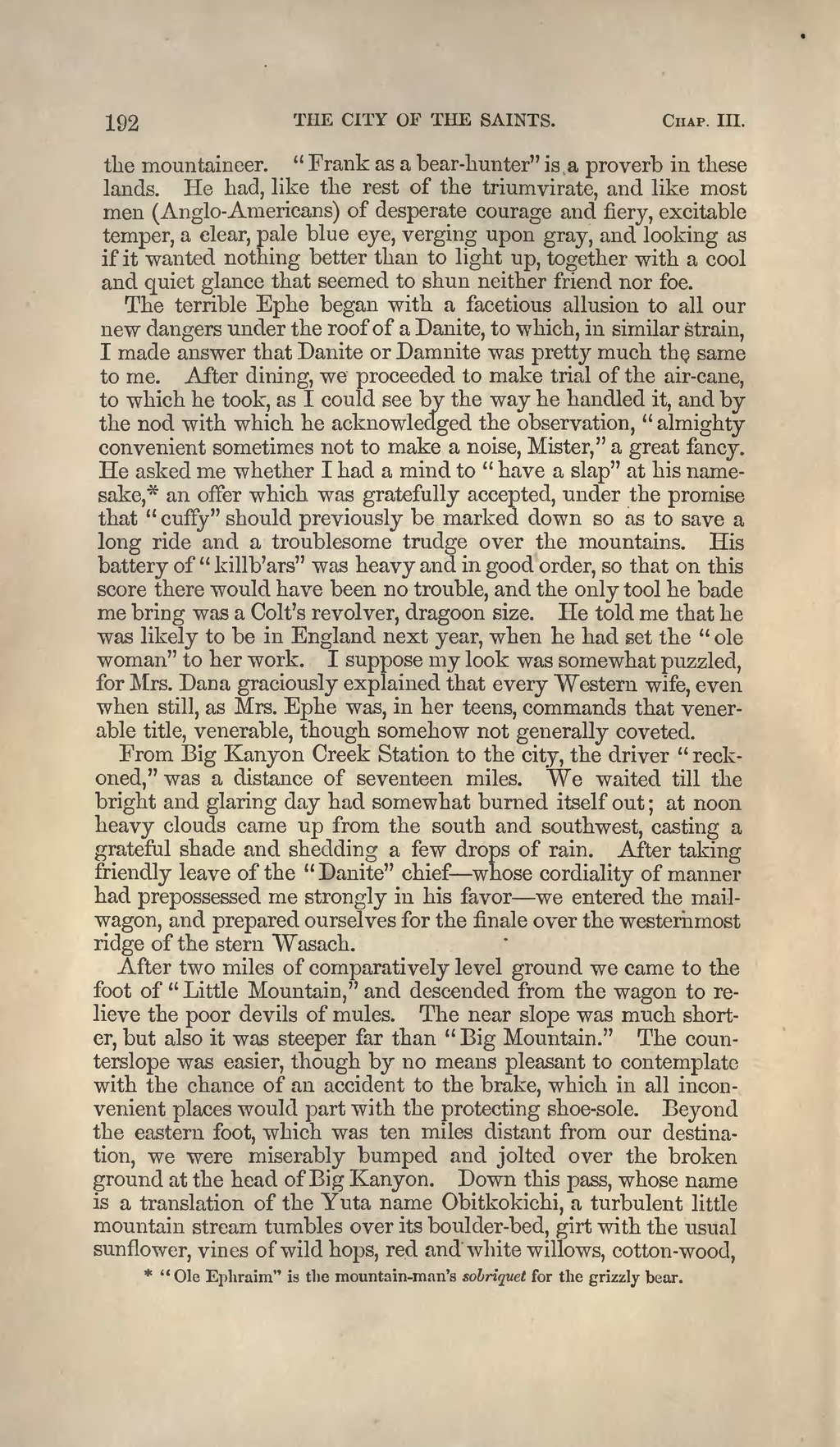the mountaineer. "Frank as a bear-hunter" is a proverb in these lands. He had, like the rest of the triumvirate, and like most men (Anglo-Americans) of desperate courage and fiery, excitable temper, a clear, pale blue eye, verging upon gray, and looking as if it wanted nothing better than to light up, together with a cool and quiet glance that seemed to shun neither friend nor foe.
The terrible Ephe began with a facetious allusion to all our new dangers under the roof of a Danite, to which, in similar strain, I made answer that Danite or Damnite was pretty much the same to me. After dining, we proceeded to make trial of the air-cane, to which he took, as I could see by the way he handled it, and by the nod with which he acknowledged the observation, "almighty convenient sometimes not to make a noise, Mister," a great fancy. He asked me whether I had a mind to "have a slap" at his namesake,[1] an offer which was gratefully accepted, under the promise that "cuffy" should previously be marked down so as to save a long ride and a troublesome trudge over the mountains. His battery of "killb'ars" was heavy and in good order, so that on this score there would have been no trouble, and the only tool he bade me bring was a Colt's revolver, dragoon size. He told me that he was likely to be in England next year, when he had set the "ole woman" to her work. I suppose my look was somewhat puzzled, for Mrs. Dana graciously explained that every Western wife, even when still, as Mrs. Ephe was, in her teens, commands that venerable title, venerable, though somehow not generally coveted.
From Big Kanyon Creek Station to the city, the driver "reckoned," was a distance of seventeen miles. We waited till the bright and glaring day had somewhat burned itself out; at noon heavy clouds came up from the south and southwest, casting a grateful shade and shedding a few drops of rain. After taking friendly leave of the "Danite" chief—whose cordiality of manner had prepossessed me strongly in his favor—we entered the mail-wagon, and prepared ourselves for the finale over the westernmost ridge of the stern Wasach.
After two miles of comparatively level ground we came to the foot of "Little Mountain," and descended from the wagon to relieve the poor devils of mules. The near slope was much shorter, but also it was steeper far than "Big Mountain." The counterslope was easier, though by no means pleasant to contemplate with the chance of an accident to the brake, which in all inconvenient places would part with the protecting shoe-sole. Beyond the eastern foot, which was ten miles distant from our destination, we were miserably bumped and jolted over the broken ground at the head of Big Kanyon. Down this pass, whose name is a translation of the Yuta name Obitkokichi, a turbulent little mountain stream tumbles over its boulder-bed, girt with the usual sunflower, vines of wild hops, red and white willows, cotton-wood,
- ↑ "Ole Ephraim" is the mountain-man's sobriquet for the grizzly bear.
